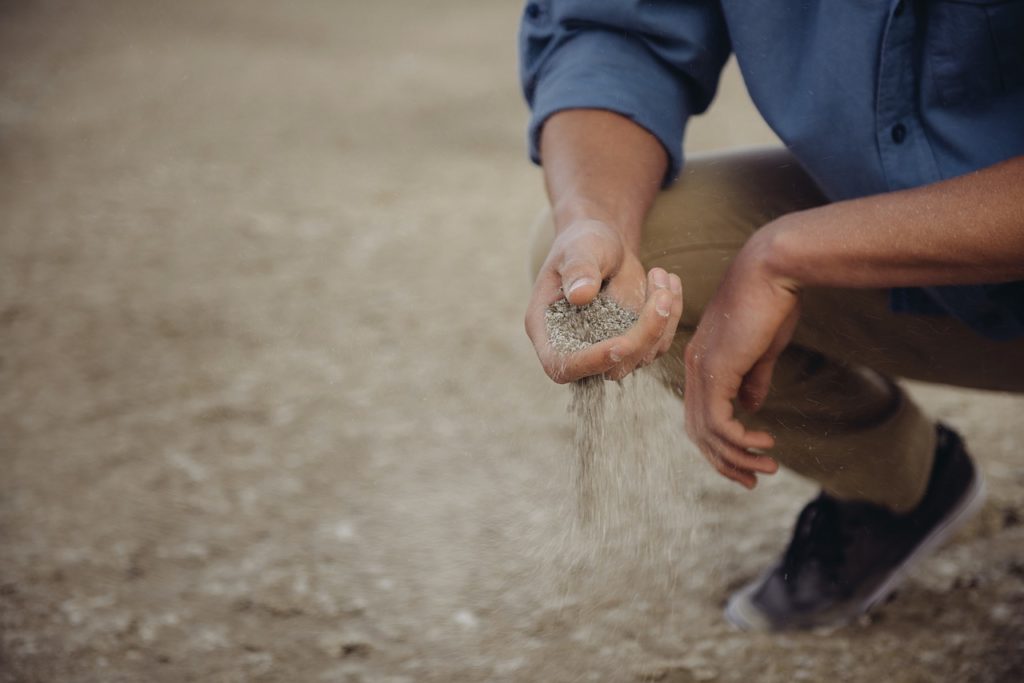
There are a number of ways to describe addiction and how it starts. One of the most useful due to its simple clarity is the sexual addiction cycle. Ever wondered where your addiction came from, how you got stuck in a pattern, or why it seems so hard to shake free? Let’s explore that right now.
This model is based in research, other people’s models, and therapeutic experience. I encourage you to engage deeply with the material and consider how it affects you.
First, draw a wheel that goes around clockwise. Write ‘Triggers’ at the top, and ‘Brokenness’ above it. Then, around the wheel write these labels, “Preoccupation, focusing and planning”, “Choice and entrapment”, “Despair”, and “Self-defeating solutions”. Now you have your own model to reference.
Brokenness
This first stop is where we find all of our past and present pain. Our families and circumstances have exerted unhealthy dynamics and damaging experiences, no matter how good they were! There are two ways that we experience ourselves as a result of our brokenness.
 First, we often have deep insecurities and feelings of being worthless, unlovable or unwanted. These feelings are excruciating and seem like truth because of our wounds. Most of us go to great lengths to avoid this pain. What pain do you carry?
First, we often have deep insecurities and feelings of being worthless, unlovable or unwanted. These feelings are excruciating and seem like truth because of our wounds. Most of us go to great lengths to avoid this pain. What pain do you carry?
Secondly, we have the potential to use and corrupt even the best of things—like sex. This becomes entangled with the first brokenness—often as a remedy—and leaves us confused and reeling. This can happen with sexual addiction. Can you see that pattern for yourself?
Sexual Addiction Triggers
Life presents us with many triggers that offer up distorted or indulgent paths! They come in two forms, internal and external triggers, and they can combine in a potent combo. Triggers are things like seeing a sexually attractive person (External) who seems interested whilst your marriage is really hard (Internal).
Internal triggers include subtle cues such as emotional distress, loneliness and physical sensations. When a trigger taps into our brokenness it is positioned to become a snare. Our thoughts can ignite and our actions follow to protect, provide and prove ourselves. An example might be your boss berating you, and you hear the old voice of your dad mocking you. You end up feeling unlovable and insecure—can sex really fill that void?
Preoccupation, Focusing and Planning
When we are triggered, we can become preoccupied with our pain, distress or sexual longings. The trigger or temptation sticks in our minds and nags us until it is addressed in some way, which is the essence of preoccupation.
When we start to focus on a preoccupation we move one step closer towards planning how to resolve the temptation through sexual means. This can often be found in ruminating thoughts and secretive actions. Plans are then relied upon to help us ‘fulfill’ the need we have started to experience.
Choices and Entrapment
Once the tension of planning rises we can make the choice to engage in the sexual activity that we often like and despise at the same time. It feels like the trap it is due to the excitation of the brain’s chemistry, and temporary relief of the painful brokenness we feel.
The choices you make seem to “help”—and so your brain encodes them and remembers them. This is how the trap forms and physical addiction can start to take hold as repeated use leads to brain changes.
Despair
Blackened moods, despair, or becoming numb can all follow the sexual act. It is common to feel like a failure and as though you will never gain control. Some people are able to block out these feelings and end up with what appears to be separate concerns of anxiety, depression or insomnia.
The result is an increasingly unpleasant experience with the only relief being the sexual activity—the one thing that seems reliable to kill the pain. The shame of this increases and prevents people from getting the help they need. Often, beliefs include: “I’m disgusting, no one will understand” or “who cares, it isn’t affecting anyone else”. These beliefs can feed back into our original brokenness and deepen it.
Self-defeating Solutions
Many people try to ‘right’ themselves by behaving well for a time, or being the ‘perfect’ spouse, or by beating themselves up enough (consciously or not) so that they will change. Other solutions can be exercising profusely to become an appealing person or pouring yourself into work. None of these actually address the brokenness and addiction that have created and maintain the cycle.
 To step out of the cycle, you have to start with your exposure and actions. Then you have to deal with the underlying brokenness that fuel the cycle. You can, with hard work and commitment break free.
To step out of the cycle, you have to start with your exposure and actions. Then you have to deal with the underlying brokenness that fuel the cycle. You can, with hard work and commitment break free.
I would encourage you to find accountability in others who are trustworthy and will help you push through this hard journey. Further help can be found in therapists, addiction groups and through the “21 Movements towards life” guide on our addictions book page.
Community Discussion - Share Your Thoughts Here!
How has accountability served you in breaking the addiction cycle?
 About the author: Paul Loosemore, MA PLPC, author of “21 Movements Towards Life” – The step-by-step guide to recovering from sexual addiction or pornography. Paul works as a mental health counselor, and consults with those who wish to recover from Sexual Addiction—both individuals and couples. He is the founder of www.stopsexualaddiction.com where you can find his guide, or contact him.
About the author: Paul Loosemore, MA PLPC, author of “21 Movements Towards Life” – The step-by-step guide to recovering from sexual addiction or pornography. Paul works as a mental health counselor, and consults with those who wish to recover from Sexual Addiction—both individuals and couples. He is the founder of www.stopsexualaddiction.com where you can find his guide, or contact him.
References:
[1]: Loosemore, P. (2016) 21 Movements towards life. www.stopsexualaddiction.com
The opinions and views of our guest contributors are shared to provide a broad perspective of addictions. These are not necessarily the views of Addiction Hope, but an effort to offer discussion of various issues by different concerned individuals.
We at Addiction Hope understand that addictions result from a combination of environmental and genetic factors. If you or a loved one are suffering from an addiction, please know that there is hope for you, and seek immediate professional help.
Reviewed By: Jacquelyn Ekern, MS, LPC on January 10, 2017.
Published on AddictionHope.com
